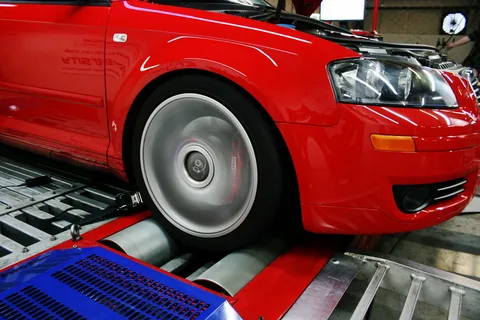Introduction:
Rolling road tuning is a method used to measure and optimize a vehicle’s performance by simulating driving conditions while the car remains stationary. This tuning method involves running a vehicle on a dynamometer, commonly referred to as a rolling road. The rolling road measures the engine’s power output, torque, and other essential parameters to ensure that the vehicle is running optimally. In this blog, we will discuss the benefits and process of rolling road tuning.
Benefits of Rolling Road Tuning:
Rolling road tuning offers several benefits to a vehicle owner, including the following:
Increased Performance:
Rolling road tuning ensures that your vehicle is running at its optimal performance level by measuring and optimizing the engine’s power output, torque, and other essential parameters.
Improved Fuel Efficiency:
A vehicle running at optimal performance uses fuel efficiently, reducing fuel costs and saving you money.
Enhanced Driving Experience:
A well-tuned vehicle provides a smoother, more responsive driving experience, making your driving experience more enjoyable.
Better Engine Longevity:
A vehicle that is running optimally experiences less wear and tear on the engine, resulting in improved engine longevity and reduced repair costs.
Process of Rolling Road Tuning:
The process of rolling road tuning involves the following steps:
- Initial Consultation: The first step involves an initial consultation with the tuning specialist, where you discuss your vehicle’s performance goals.
- Diagnostic Tests: The specialist then performs diagnostic tests on the vehicle to determine its current performance level and identify any issues that need to be addressed.
- Dynamometer Test: The vehicle is then placed on a rolling road, and the specialist runs the engine through a series of tests to measure the power output, torque, and other essential parameters.
- Tuning: Based on the results of the diagnostic tests and dynamometer test, the specialist will adjust the engine’s settings to optimize its performance.
- Re-Test: After the tuning is complete, the specialist will perform another dyno test to ensure that the vehicle is running at optimal performance levels.
- Final Consultation: The specialist will then provide a final consultation, explaining the tuning process and any recommendations for ongoing maintenance and care.
Conclusion:
Rolling road tuning is an excellent way to optimize your vehicle’s performance, fuel efficiency, and driving experience. The process involves an initial consultation, diagnostic tests, dynamometer testing, tuning, re-testing, and a final consultation. The benefits of rolling road tuning include increased performance, improved fuel efficiency, enhanced driving experience, and better engine longevity. If you are interested in improving your vehicle’s performance, consider scheduling a rolling road tuning session with a reputable tuning specialist.



